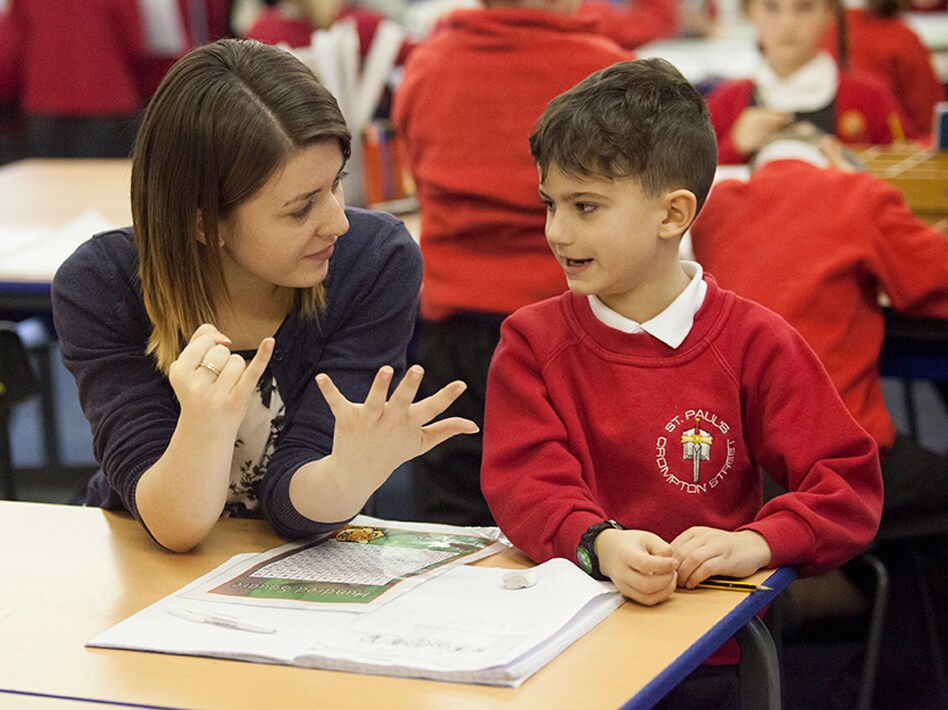#LearningFirst: Supporting ‘Beginning Teachers’ in Being ‘Assessment Capable’

On Saturday 21 May, a group of us from Pearson went along to the first #LearningFirst event hosted by the @BeyondLevels team organised by Dame Alison Peacock.
The full-day, brilliantly organised conference at Sheffield Hallam University was aimed at 'putting assessment in its place' and refocusing on the importance of learning. It was attended by a mix of experts, consultants, senior leaders and teachers from primary and secondary schools - about 500 of us in total.
One of the workshops I attended was Diane’s Swift’s session on ‘Supporting Beginning Teachers in Being Assessment Capable’. Diane is Director at Keele and North Staffordshire Primary SCITT.
I thought I knew about most initial teacher training set-ups, but one of the many new things I discovered at the inaugural, and excellent, #LearningFirst conference was that the set-up they have at Keele and North Staffordshire Primary SCITT (KNSPS) is different. Their SCITT is a franchise from Keele University: Keele do the quality assurance but the award comes from the SCITT itself – possibly a unique situation in the UK. And they have 70 – yes seven zero – schools working with them.
As you can imagine, that means a huge diversity of practice among the schools and a wide range of situations they have to prepare their trainees, aka ‘beginning teachers’, for. It is easy to picture the dilemma that trainees may be faced with - being in schools with very different approaches to the best practice theory they learn about on the course.
At KNSPS, trainees are encouraged to think conceptually from the beginning of their practice rather than go straight for content, and yet they are taught the importance of subject knowledge. This approach may hopefully mitigate the situation whereby a teacher facilitates a highly engaging lesson around melting chocolate, but fails to talk about the properties of materials.
Diane suggested that as teachers, we should try doing a search and replace on any document we are dealing with and ask ourselves if we could replace the word assessment with the term progress. If we can’t, then we might question whether or not it is meaningful (as an aside, curiosity took me to the Mathematics Programme of Study to test this theory, where I discovered the word assessment is never mentioned! Who knew?!).
Looking to Wikipedia for simplistic help, I learned, ‘Assessment can focus on the individual learner, the learning community (class, workshop, or other organized group of learners), the institution, or the educational system as a whole’. Doing the whole word swap thing makes sense here.
Apparently, the phrase ‘assessment capable’ in the title of the workshop came from New Zealand, and I have to agree with Diane when she says it make us think of both the capacity and the capabilities needed for assessment. Most importantly, in a climate where we all wondering and worrying about what, where, how and who to assess, Diane reminded us to focus on the children; an assessment capable teacher will encourage them to feel deeply accountable. Hear, hear!
Most importantly, in a climate where we all wondering and worrying about what, where, how and who to assess, Diane reminded us to focus on the children; an assessment capable teacher will encourage them to feel deeply accountable.
The @Beyond Levels #LearningFirst workshop on ‘Supporting Beginning Teachers in Being Assessment Capable’ was delivered by Diane Swift (Director, Keele and North Staffordshire Primary SCITT).
Find out more about the @Beyond Levels #LearningFirst community.